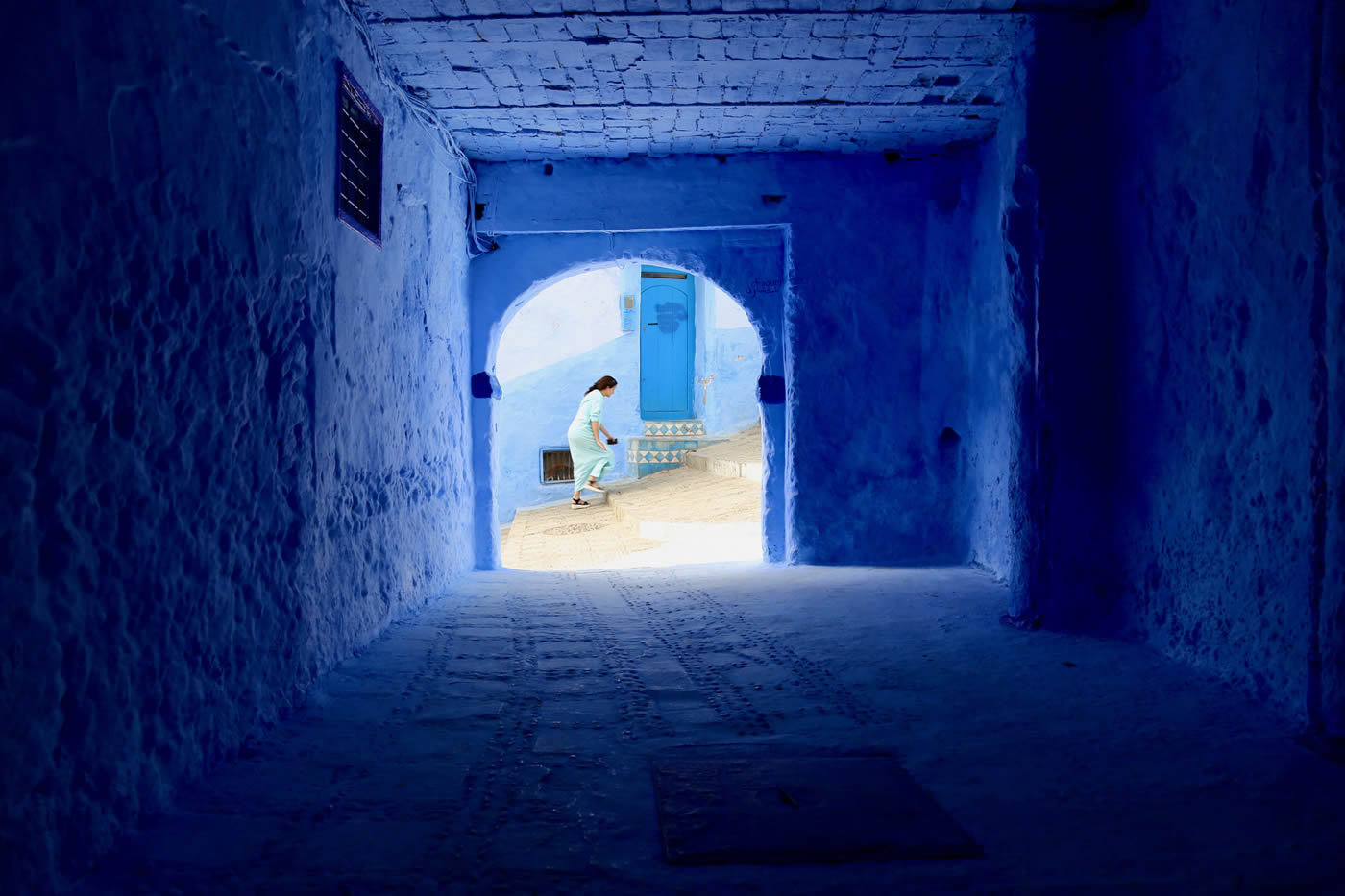Class 13: Life in the womb
[su_icon icon=”icon: link” color=”#ff1259″ size=”20″ shape_size=”12″ url=”https://youtu.be/OUhpwBXq5ac?t=9s” target=”blank”]Video[/su_icon]Hi, welcome back to the Wheel of Life at-home retreat. We have reached session 13. That’s called “Life in the womb.” What happened is, we finished the first two of the twelve links of The Wheel of Life. As you remember, link number one was misunderstanding things. If misunderstanding could talk, it would walk in the kitchen and when the husband yells, it would say, “I didn’t do anything! Why are you yelling at me?”
That’s perfect link number one, and it causes all the trouble in our life. Then that, “I didn’t do anything, but he yelled at me.” That’s perfect link number one misunderstanding talking. And that triggers the twelve links–tsk tsk tsk … I like his translation of “tsk tsk tsk.” So it triggers each one and so “I didn’t do anything,” then that misunderstanding triggers the second link. The second link says, “I’m not stupid, you’re stupid!” Because we have misunderstanding we make karma, we plant new seeds.
[su_icon icon=”icon: link” color=”#ff1259″ size=”20″ shape_size=”12″ url=”https://youtu.be/OUhpwBXq5ac?t=2m15s” target=”blank”]Video[/su_icon]Now link number three, as you see the picture … by the way, we started with a child in the womb, which is the general theme of this whole session 13. But, now we’re going to go to link number three. It’s called “consciousness” or you can say “awareness.” The traditional painting is a monkey. Now listen, many years ago I was going to teach the Wheel of Life in Austin, Texas–it’s a small city in Texas. I was very excited and I thought ten people were coming. And I said, I’m going to order a painting of the Wheel of Life for each person who comes.

Then I found a painter in Nepal. He can paint for like a hundred dollars for each painting. Then it will cost me a thousand dollars. And I thought that’s ok. Then the organizer in Texas, (with accent) they talk like that in Texas, She called me, “Oh Geshe-la, yeah a hundred people coming!” Then I am like, “Oh my god–that’s ten thousand dollars!” I called the painter in Nepal, “Can we get a little bit cheaper paintings?” He said, “How much?” I said, “Well my budget is a thousand dollars and I need to make a hundred paintings.” So to give each participant one painting, they said, “Ha ha! For ten dollars, I won’t even pick up my paintbrush.”
Then my friend heard about the problem. “Geshe Michael, I have solution.” “What?” “I know a school for children in Nepal where they teach painting.” And I said, “Oh great–we can get the kids to paint.” Then this is the painting I got from the kids. And that’s why each link is painted so badly. But anyway you can tell, link number three is a monkey, right? This represents your mind entering your mother’s womb.
[su_icon icon=”icon: link” color=”#ff1259″ size=”20″ shape_size=”12″ url=”https://youtu.be/OUhpwBXq5ac?t=5m40s” target=”blank”]Video[/su_icon]Now let’s go to the text. sumpa namshe la gyu du dang dre du kyi namshe nyi (GSUM PA RNAM SHES LA RGYU DUS DANG ‘BRAS DUS KYI RNAM SHES GNYIS)–now we reach link number three, which is consciousness. You can divide all consciousness into two kinds: one is consciousness at the time of the cause, and the second is consciousness at the time of the result. What does that mean? The text says: dangpo ni (DANG PO NI)–what is consciousness at the time of the cause? du je kyi le kyi bakchak shak ma thakpay namshe dang (‘DU BYED KYI LAS KYI BAG CHAGS BZHAG MA THAG PA’I RNAM SHES DANG) In link number two, the woman yelled back at her husband, “I’m not stupid–you’re stupid!”
Those words came out of her mouth, touched the husband’s ear, Then the husband (frowns). But those words also circle around to her own ear, and they go into her mind and they make an imprint on the mind. That’s what this book now says. du je kyi le kyi bakchak (‘DU BYED KYI LAS KYI BAG CHAGS). bakchak (BAG CHAGS) is another word for “karmic seed,” and it’s that imprint on the mind. It goes like this: misunderstand the husband, link number one, “I didn’t do anything!” Link number two, “I’m not stupid–you’re stupid!” Link number three is one second later. That sound reaches her own mind and it makes an impression there–bakchak.
The mind at that moment is called “the consciousness of the time of the cause”. nyipa ni (GNYIS PA NI) What’s the consciousness at the time of the result? kye si du nying tsam jar ma takpay du kyi namshe de yin (SKYE SRID DU NYING MTSAMS SBYAR MA THAG PA’I DUS KYI RNAM SHES DE YIN)–well, that’s the monkey and it’s your awareness entered your mother’s womb. Your mind at the moment that you plant a new seed, that’s called consciousness at the time of the cause. And consciousness at the time of the result, is just after your mind goes into your mother’s womb and you make the crossing to that new life.
[su_icon icon=”icon: link” color=”#ff1259″ size=”20″ shape_size=”12″ url=”https://youtu.be/OUhpwBXq5ac?t=9m02s” target=”blank”]Video[/su_icon]Then Pabongka Rinpoche wants to give us an example. per na marikpe kun ne lang te (DPER NA MA RIG PAS KUN NAS BSLANG STE)–Let’s say that your motivation, your misunderstanding, pushes you to do something. There is a very common misunderstanding nowadays. If you want to be healthy, you have to eat a lot of protein, and the best place to get the protein is to kill an animal and then they eat their body. This is motivated by misunderstanding. I became vegetarian about 35 years ago. All my friends from Princeton University, they told me, “Oh, Mike, you’re going to get sick! You don’t have enough protein–you are not eating meat.”
I will tell you something true: All those guys are dead. They all had a heart attack, diabetes, obese, because they eat too much meat. That’s a kind of misunderstanding, “I have to meat to be healthy.” Then you pay people to kill that animal. So he says, sok chu kyi le dujepay tse (SROG GCOD KYI LAS ‘DU BYED PA’I TSE)–when someone kills the animal for you, and suppose le lam dzok (LAS LAM RDZOGS) … This le lam (LAS LAM) is a very exciting word for all of you people who went to programs by DCI.
The word le (LAS) means “karma.” The word le lam means a “path of karma.” For fifty dollars: what is the difference between karma and the path of karma? le lam means the complete four steps. le–karma–is the one that is not complete. Unfortunately, you are correct. Yes. How do you say, le lam? Okay, le lam. So, dzokpa (RDZOGS PA)–let’s say you kill the animal, all four steps were complete.
[su_icon icon=”icon: link” color=”#ff1259″ size=”20″ shape_size=”12″ url=”https://youtu.be/OUhpwBXq5ac?t=12m30s” target=”blank”]Video[/su_icon]What’s the four steps? “I want protein so I can be healthy.” Number one: say what you want. Number two: Who is going to be your bad seed planting partner? A pig. Number three: How to do the bad deed? Pay the store to pay the guy to kill the pig, then you collected three new bad karmas! What’s step four? “Oh, I’m so glad I ate the pork today. Now I will have muscle.” That’s a le lam dzok–all four steps are complete.
In DCI programs, which you should go to for advice about success in your life, especially financial success–we will talk about four steps for good seeds and good goals. But here we’re talking dzokpa–four steps for bad seeds. The minute you finish the fourth step, you’re going to bed, you’re doing anti-coffee meditation: “I’m so glad I ate the pork! Now I will have big muscles.” The mind at that moment, the consciousness at that moment, where the seed is imprinted into. Here’s the mind that’s called the consciousness at the time of the cause.
Because the seed is being planted, the cause is being planted into the consciousness. le dey tu la ten ne (LAS DE’I MTHU LA BRTEN NAS) nyelbay kye si du nying tsam jar ma takpay ne kap (DMYAL BA’I SKYE SRID DU NYING MTSAMS SBYAR MA THAG PA’I GNAS SKABS) kyi namshe dendre du kyi namshe yin (KYI RNAM SHES DE ‘BRAS DUS KYI RNAM SHES YIN) but, because of that power of that karma, you die and you cross the bridge into the new life to the hell realms.
That mind travels from the life where you killed the pig up to the life you go to the hell. The moment you reach the hell, your mind at that time, we call it the consciousness of the time of the result. Then he makes another statement in the text. mi geway le (MI DGE BA’I LAS) re re kyang ngen song gi kyewa mangpo pen nu (RE RES KYANG NGAN SONG GI SKYE BA MANG PO ‘PHEN NUS)–Each time you make bad karma, each time you eat an animal’s body, each one of those eatings has the power to create many births in the lower realms. If that factory that kills the pig, they really make the pig suffer, and you eat pork, it’s not one suffering life going to come from that many. That’s the bad news. The next sentence has the goodness. de shin sunam kyi le sok la rik dre (DE BZHIN BSOD NAMS KYI LAS SOGS LA RIGS ‘GRE)
[su_icon icon=”icon: link” color=”#ff1259″ size=”20″ shape_size=”12″ url=”https://youtu.be/OUhpwBXq5ac?t=17m02s” target=”blank”]Video[/su_icon]But when you make good karma, you can do the same thing. You make one nice tea for your friend, and you dedicate it to becoming a Buddha, that one making tea will give you many happy rebirths. How does that action of eating the pork, how does this imprint press on the mind? How does it happen? This is a big question in the Mind-Only School. We spent a long time discussing it in the Mixed Nuts translation classes. Those classes are free online on YouTube; Tibetan Language Channel, 600 hours. You should look at them.
detar che ma la num shukpa-am (DE LTAR BYE MA LA SNUM ZHUGS PA’AM)–if you have sand and you drip oil on it … In America, in the car fixing places, the oil will get on the floor, and it becomes very slippery, so they will spread sand on the floor. The sand will absorb the oil. And that’s one example for how the consciousness absorbs the imprint. shok bu la tel tse gyabpa (SHOG BU LA THEL TSE BRGYAB PA)–tel tse (THEL TSE) Right here, yeah, good, you don’t know.
I’ll give you another Tibetan word: chakya (PHYAG RGYA). Yeah. What’s the real meaning of mudra? This is twenty dollars. Okay, twenty dollars. tel tse is the other word for “stamp.” In the old days, the great emperors would stamp the paper with their seal. That’s another example for how the seed is imprinted on the mind. le kyi bakchak gupa (LAS KYI BAG CHAGS BSGOS PA). gupa (BSGOS PA) here is an unusual Tibetan word. But it’s an important word in the study of seeds. It almost means like, if you take a jasmine flower, and you wipe it on your clothes, then that smell will get into the cloth. What’s another good word? It gets “imbued,” “infused.” The smell gets infused.
So you can say “imprinted.” Or you can say “infused.” shakpa la (BZHAG PA LA)–then that seed needs water and fertilizer, which is two kinds of desire: link number eight and link number nine. We’ll talk about those two kinds of desire later, because they’re not really desire. But link number eight and link number nine, they take the seed from link number two, which was infused into link number three: your mind. They water it, they give it fertilizer, and then that karma becomes extremely powerful. We’ll talk about it later.
[su_icon icon=”icon: link” color=”#ff1259″ size=”20″ shape_size=”12″ url=”https://youtu.be/OUhpwBXq5ac?t=22m02s” target=”blank”]Video[/su_icon]We’re going to go to link number four. This is called nama rupa: name and form. The image is two guys in a boat. If you remember in link number three, your mind was entering your mother’s womb or into an egg, things like that. But talking about normal human birth, shipa ming suk la ngel kye kyi wang du je na (BZHI PA MING GZUGS LA MNGAL SKYES KYI DBANG DU BYAS NA)–if we’re going to talk about link number four–name and form–let’s stick to people who are born from a womb.

When you say “name,” it’s really a reference to the four of the five parts of a person. So in English, we say “body and mind.” But in Buddhism, we say “the five parts.” Normally in English, we would just say “body and mind”–the physical part and the mental part. But in Buddhism, we divide body and mind into five parts. So four of them are called ming shiy pungpo (MING BZHI’I PHUNG PO), which means “the part of you which is called ‘name’.” Four of the five parts are included into the “name” when you say “name and form.”
These are tsorwa dushe duche namshe (TSOR BA ‘DU SHES ‘DU BYED RNAM SHES)–these four. (1) tsorwa (TSOR BA)–your feeling. Good feeling, bad feeling, neutral feeling. Body feeling, mental feeling. (2) dushe (‘DU SHES)–your habit of dividing things: that’s big, that’s small; that’s tall, that’s short; that’s my friend, that’s my enemy. (3) duche (‘DU BYED) means “other parts” of you, like the seeds in your mind. And (4) namshe (RNAM SHES)–your mind. These four are called “name,” when we say “name and form.”
Basically, you can think of these four as your mind inside your mother’s womb. namshe shukpay ku trak gi mer merpo sok ni suk kyi tendrel te (RNAM SHES ZHUGS PA’I KHU KHRAG GI MER MER PO SOGS NI GZUGS KYI RTEN ‘BREL TE) What is the “form” part of “name and form”? In the very first moments inside your mom’s womb, it’s the mother’s menstrual blood and the father’s semen, which are mixing together, and your mind goes into it at link number three. That’s pretty much your body at that moment–it’s just a little puddle of blood and semen.
[su_icon icon=”icon: link” color=”#ff1259″ size=”20″ shape_size=”12″ url=”https://youtu.be/OUhpwBXq5ac?t=26m23s” target=”blank”]Video[/su_icon]Here there’s a very unusual word: mer merpo (MER MER PO). This refers to the first of ten stages of life of a human. These are …. how do you say …hmmm I’m going to teach you those ten, because I like to go deeper and he mentions the first, which is called mer merpo. It kind of means “little sticky mess”, blood and semen together, and that’s your body at that moment. Pabongka Rinpoche says–before I go on to those ten, which is extra, it’s just to go deeper–he says maybe we should call this link number four, instead of calling it “name and form,” which is really “mind and body.” Maybe we should call it either mind or body, at that moment.
Which part are you focusing on is the link at that moment. I did some work and I got what I think is the best explanation of the ten stages of life that starts with mer merpo, which is that little mess of liquids. This comes from a very famous commentary on vowed morality–vinaya. It’s written by Tsonawa Sherab Sangpo (MTSO SNA BA SHES RAB BZANG PO). He lived about two hundred years before Tsongkapa. He wrote a brilliant two-volume commentary on vowed morality. It’s called a chen dril (CHEN DRIL). chen dril means a commentary where there are also some footnotes. Actually, I took the footnotes out of this section because it’s too complicated. But still, it’s a beautiful description. We’re going to go through this part, it’s going to take some extra time. I hope you’ll be patient with me and don’t complain you’re getting extra. Ok, here we go. We’re going to follow the Tibetan.
[su_icon icon=”icon: link” color=”#ff1259″ size=”20″ shape_size=”12″ url=”https://youtu.be/OUhpwBXq5ac?t=30m03s” target=”blank”]Video[/su_icon]mir gyurpa la ne skab chur ye te (MIR GYUR PA LA GNAS SKABS BCUR DBYE STE)–Let’s say you happen to be a human, your life can be divided into ten stages of life. Shakespeare wrote a beautiful little text about the stages of life. I’m going to give you that at the end–that’s dessert. u den le (‘OD LDAN LAS) means the Commentary to Vowed Morality Which Shines Like Light. That was written maybe more than a thousand years ago. Now he is quoting this older Vinaya book from India.
mir chakpa ni (MIR CHAGS PA NI)–The stages of human life (1) mer mer (MER MER), (2) nur nur (NUR NUR), (3) tar tar (LTAR LTAR), 94) trang gyur (‘KHRANG ‘GYUR), (5) kang lak gyu (RKANG LAG ‘GYUS), (6) yipa (BYIS PA), (7) shon nu (GZHON NU), (8) ngel bap (DNGAL BABS), (9) barma (BAR MA), and (10) genpo (RGAN PO). These are the ten.
He explains what the ten are. The ancient commentary was written by Shakyaprabha. He doesn’t really explain the ten much. So here’s Tsonawa’s comment. de nam kyi kyepar ni (DE RNAMS KYI KHYAD PAR NI) What’s the difference between these ten? pa may mi tsangwa nyi tsok shing (PHA MA’I MI GTZANG BA GNYIS TSOGS SHING)–when the two, he calls it dirty liquids, from your mom and your dad, when they mix together in the womb, the mind from the bardo (BAR DO) enters that blood and semen. During the first week of the formation of the fetus, we call it mer merpo. What’s it mean? And here it’s misspelled–pri ma tabu (misspelled: SBRIS MA LTA BUS). You know a pond of water? Or Indian tea and you pour in the milk. You boil it, and then when it gets cool, we call it scum–there’s a layer on the top that gets a little bit hard. That’s a pri ma (SPRIS MA) or a very dirty pond that has a layer of scum. Scum means like super dirty stuff on the top. That’s what you look like in the first week–you’re like some scum of the cream or something. They gave that a name called mer merpo, which doesn’t mean a lot in Tibetan. It just means “icky gooey stuff”.
[su_icon icon=”icon: link” color=”#ff1259″ size=”20″ shape_size=”12″ url=”https://youtu.be/OUhpwBXq5ac?t=34m20s” target=”blank”]Video[/su_icon]dun trak nyipa la (BDUN PHRAG GNYIS PA LA)–in the second week of development in the womb, you take a shape we call nur nurpo (NUR NUR PO). sho tabur duk (ZHO LTA BUR ‘DUG)–your body is a little bit like yogurt. shar ma gyur pa-o (SHAR MA GYUR PA’O)–and it starts to form into like a flat piece of cloth, like a strip, like a ribbon. That’s called nur nur. You’re a little bit longer, but you are skinny like tape.
dun trak sumpa la (‘DUN PHRAG GSUM PA LA)–in the third week, tar telpo (LTAR LTAL PO)–you get tar telpo and that little strip ribbon, of flesh, becomes a little bit wider–you can see it almost starting to become a cylinder. dun trak shipa ne (BDUN PHRAG BZHI PA NAS)–in the fourth week, we call tre gyur (‘KHRAD ‘GYUR)–as you start to get more stiff kabar gyur te men du (BSKA BAR GYUR TE MNAN DU). In English, you take some body like a cylinder, and you can actually push on it and it will stay like that, a little bit firm.
Ok, step number five: kang lak gyupa ni sha hlak tabur gyur te (RKANG LAG ‘GYUS PA NI SHA LHAG LTA BUR GYUR TE)–they don’t say the week, but the next step is called “arms and legs are starting to squeeze out”. Like if you get a goiter on the throat, you get a big bump come here. Or you get a wart on your face. So then the kid’s arms and legs are in like bumps.
Stage number six called yipa (BYIS PA). You know this word–you had it for a non-arya. It means an infant. In English, infant. And the definition is that you came out of your mom but you can’t walk or crawl–you are just stuck there. And Stanley knows this word because it’s also used in Buddhist philosophy to describe a person who hasn’t seen emptiness yet. They’re like a little baby who can’t even crawl.
Stage number seven: shon nu ni dro nu ne dupa chu mi nupa-o (GZHON NU NI ‘GRO NUS NAS ‘DOD PA SPYOD MI NUS PA’O)–from the time that you can crawl up to the time that your body is mature enough to have a sexual experience. That’s called youth.
The next one is called dar la babpa (DAR LA BAB PA)–I mispronounced it before–I said ngel bap, but the carving was wrong. It’s dar la babpa. dar la babpa ni dupa chu nu (DAR LA BAB PA NI ‘DOD PA SPYOD NUS) pa ne lo sum chu men che do (PA NAS LO SUM CU MAN CHAD DO)–from the time that you are old enough to have your first sexual experience up to the time of thirty is called young adult. Up to the age of thirty, yup.
[su_icon icon=”icon: link” color=”#ff1259″ size=”20″ shape_size=”12″ url=”https://youtu.be/OUhpwBXq5ac?t=39m20s” target=”blank”]Video[/su_icon]bar ma ni (BAR MA NI)–then what we call … What did we say? Young adult, right? Middle age. In English, we call it middle age and in Tibetan same, but it means from thirty on up to fifty. Stage number nine: middle age.
Stage number ten is called elderly. Starts at age fifty, but for some people at sixty-eight, okay? Just kidding.
Why are we talking about the stages? Because we heard the first stage and it was inside the womb. It was just the five parts of you stuck to the blood and semen of your dad and mom, like your new body. Name and form: all your mental parts, etc., along with your physical part, in the womb at the first moment. The body and mind inside the womb, that’s link number four. Two guys in a boat because the boat represents the womb. You can see it in the picture here, even if it was drawn by a bunch of kids. There’s a body and mind, two guys in a boat, which is the womb of the mom.
[su_icon icon=”icon: link” color=”#ff1259″ size=”20″ shape_size=”12″ url=”https://youtu.be/OUhpwBXq5ac?t=41m31s” target=”blank”]Video[/su_icon]Whenever I teach this–and this is the last thing for today’s session–I love to go through a quotation by Shakespeare. It’s very, very famous from a play called “As You Like It,” which is kind of a comedy. So just sit back and relax. Put it in the Tibetan stuff to show on the screen so Tim can follow in the English if you want.
All the world is a stage, like a play, and all the men and women are just actors on the stage. Each has their exit and their entrance–there’s time when they’re supposed to leave this stage and there’s a time when they’re supposed to come on the stage–like death and rebirth. And in our lifetime, we play seven different actors. First we are the infant–yipa. Mewling and puking in his nurse’s arm, nurse is the woman they hire to hold the baby. Mewling means “weh weh” and puking is “ble ble.”
Then the second part we all play–it’s like the same as the ten parts of the Vinaya–then you are the whining schoolboy, “Oh ma, do I have to go to school?” “Yeah, take your satchel,” means your backpack with all your books and your shining morning face. It means your life is like one day and in the morning the face is very fresh and beautiful. He agrees to go to school but he goes as fast as a snail. Then he gets, I don’t know, sixteen years old, then he falls in love, he or she falls in love–first time in high school.
Then they sigh like a furnace. Furnace means an old thing to make the fire go…it’s like (blowing sounds). “Oh, oh, my boyfriend!” “Oh, my girlfriend!” With a woeful ballad, means like a rock’n’roll song, which is like “Oh, she don’t love me.” He sent to his mistress’s eyebrow, he gets up close to his girlfriend and says, “I love you, I love you.” Then later they get more mature, they want to fight in the war full of strange oaths, “I will defend my country no matter what.”
Now they can grow a beard–“pard like” means “like a priest.” Jealous in honor, sudden and quick in quarrel. You say something to these guys. They’re like, “I will fight you!” Very brave real (Chinese word). Seeking the bubble of reputation, they want to be famous. But that kind of famous tough guy lasts like as long as a bubble. Even in the mouth of the cannon, even when they’re about to die, then they come back from the war, they eat too much pastries, they start to gain a little bit of weight, they start to collect money, then they have better clothes, and they are very intelligent and they look at you like this (frowns).
Then they start quoting wise things. They give you logic. They are more mature, like they became a lawyer. and he also plays–he’s the fifth part of a human. What is stage number six? The guy’s legs gets… those big muscle legs from his war time, they get skinny, skinny. Then the pants, they’re not tight anymore, then he has to wear glasses also, and he gets to a little special belly for a sixty-seven year old. His socks don’t fit him anymore because they’re too skinny. He used to talk like that (deep voice), like a little kid (high voice). He loses … even the voice becomes weak.
Then comes the last scene of all–number seven. It ends this strange story. He goes back to his childhood, can’t think anymore, you lose your teeth, lose the eyes, lose all the taste of the good food, lose everything. And that’s Shakespeare’s seven stages. It’s not much different from the Wheel of Life, same result get old and die. That’s all caused because we don’t understand our husband in the kitchen. And we don’t have to go like that. We can change it, if we change the misunderstanding of our husband in the kitchen.
Okay, we’ll continue with the Wheel of Life session 14 in the next class.
Thank you. And thank you Stanley for translating.






